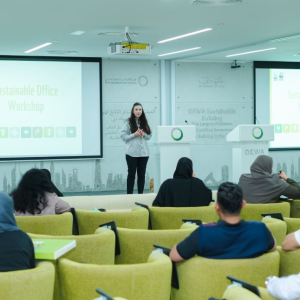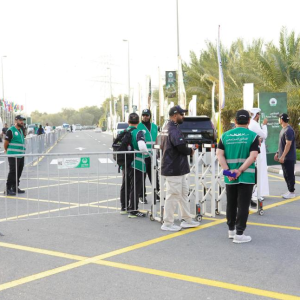Introduction
In July, commuters in Ajman will experience an updated taxi fare system, with the rate set to increase to AED 1.82 per kilometre. While fare hikes often stir immediate concerns, this decision aims to reflect changing operational costs and enhance the overall commuting experience for passengers across the emirate.
Why the Fare is Changing
The decision to adjust taxi fares each month is not taken lightly. It is closely tied to fluctuations in fuel prices and broader transportation costs. As fuel remains a significant component of taxi operations, minor adjustments ensure that drivers and operators can continue to provide safe, reliable, and high-quality services without compromising sustainability.
This transparent pricing approach allows commuters to anticipate changes rather than be surprised by sudden jumps. Instead of absorbing rising costs internally, the system passes on a small, manageable share to passengers while preserving service standards.

What the Fare Increase Means for Passengers
For many daily commuters, even slight fare increases add up over time. However, the new rate—AED 1.82 per kilometre—translates to only a few additional dirhams on average rides. The benefit? Commuters can continue to rely on well-maintained vehicles and professional drivers.
The fare adjustment supports a more sustainable transport ecosystem. It means drivers can afford essential vehicle maintenance, adhere to stricter safety standards, and ensure a comfortable journey for every passenger. By maintaining a modern and reliable fleet, the community benefits from safer, cleaner, and more efficient travel.

Positive Impacts on Service Quality

One of the often-overlooked advantages of fare increases is the direct reinvestment into service quality. Revenue from updated fares is channelled into several key areas:
- Vehicle maintenance and upgrades: Ensuring that taxis stay in excellent condition, reducing the risk of breakdowns and improving passenger comfort.
- Driver welfare and training: Providing better support and ongoing training for drivers helps maintain professionalism and enhances customer experience.
- Operational efficiency: Keeping taxis on the road longer without service interruptions benefits both passengers and drivers.
When services are more reliable, passengers spend less time waiting and enjoy more predictable travel times.
Fare Adjustment: A Look at Monthly Trends
The decision to adjust fares monthly allows for gradual, transparent changes rather than sudden, drastic increases. Recent months have seen small increments, reflecting minor shifts in fuel and operational costs. This strategy gives both residents and visitors the chance to plan their budgets without unexpected surprises.
By making fare adjustments gradual, authorities ensure the price remains competitive while sustaining service quality. For those who rely on taxis daily, this approach provides a clear roadmap for monthly commuting expenses.
Why the Change is Good for Ajman
The new fare structure carries broader benefits beyond individual taxi rides. It encourages a healthy economic environment for drivers and operators, which in turn supports local livelihoods. When drivers receive fair compensation, they are more motivated to deliver excellent service, creating a positive cycle of improvement.
Moreover, this adjustment supports environmental initiatives. Better-maintained vehicles contribute to lower emissions and reduced environmental impact. In a city striving for innovation and sustainability, such incremental changes play a crucial role.
Regional Comparisons
When compared to other emirates, Ajman’s fare adjustments remain measured and fair. While each emirate adapts differently to operational costs, Ajman has consistently aimed to strike a balance between affordability and service excellence. The emirate continues to stand out as a competitive choice for daily commuters and visitors alike.
Tips for Commuters in July
For those planning their daily travel in July, here are a few practical suggestions:
- Estimate your costs: Take a moment to calculate your regular routes with the updated rate to avoid surprises.
- Consider alternative options: If you frequently travel longer distances, look into ride-sharing or carpooling to reduce costs.
- Stay updated: Monthly changes mean it’s helpful to check fare updates regularly, so you can plan your budget accordingly.
- Provide feedback: Authorities often encourage feedback from residents to improve services continuously. Sharing your commuting experience can directly influence future adjustments.
The Human Angle: Stories from the Road

Behind every fare adjustment is a story. Commuters like Omar, who takes a taxi daily to work, see the fare rise as a fair trade-off. “I used to be worried about fare increases, but now I understand that it helps maintain good cars and friendly drivers. I feel safer knowing my driver is supported,” he shared.
Drivers, too, express relief and optimism. Ahmed, a seasoned taxi driver in Ajman, explained, “When fares reflect actual costs, we can focus on providing great service rather than worrying about covering basic expenses. It keeps us motivated and ensures we stay professional.”
These personal stories underline the human side of transportation—how even small policy changes can impact daily lives in meaningful ways.
A Step Towards a Smarter, Safer Future
The fare increase aligns with Ajman’s broader goals of becoming a smarter, safer, and more efficient city. As the emirate modernises, transport remains a key pillar of its growth. By ensuring fares keep pace with operational realities, authorities can continue to invest in technology, cleaner vehicles, and improved infrastructure.
Long-term, commuters can expect further innovations: contactless payment systems, better route optimisation, and enhanced real-time tracking. Each of these improvements depends on maintaining a robust, financially sustainable transport sector.
What to Expect Next
July’s fare increase to AED 1.82 per kilometre is not the final change commuters will see. Fares will continue to be reviewed monthly, adapting to fuel price fluctuations and evolving operational demands. This system of gradual adjustment protects both drivers and passengers from economic shocks.
While some months might bring a decrease, others could see minor increases. However, the transparency and predictability built into this system help foster trust and cooperation among all parties.
Conclusion
Ajman’s move to increase taxi fares in July reflects careful, forward-thinking planning designed to support both passengers and drivers. Far from being a simple price hike, the change is an investment in safety, service quality, and the overall commuting experience.
For passengers, this means more reliable rides, safer vehicles, and better-trained drivers. For drivers, it ensures fair compensation, better working conditions, and a more secure livelihood. Together, these outcomes build a stronger, more connected Ajman.
In a city where every detail counts, even a small fare adjustment signals big things ahead: smarter systems, cleaner journeys, and a community-driven approach to urban living. The next time you step into a taxi in Ajman, know that your ride is part of a bigger, positive transformation—one kilometre at a time.
Do follow UAE Stories on Instagram
Read More: Top VPNs That Still Work in Dubai Mid‑2025












